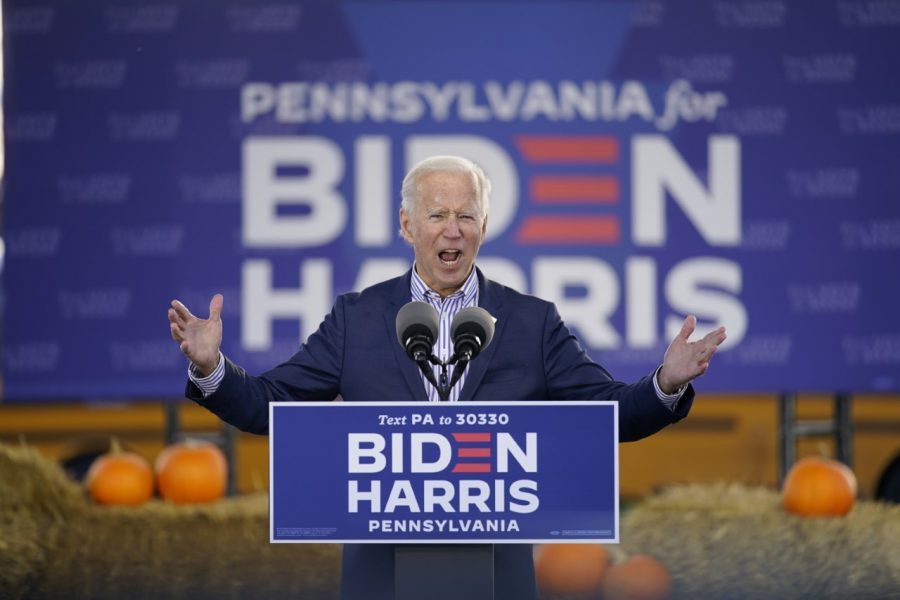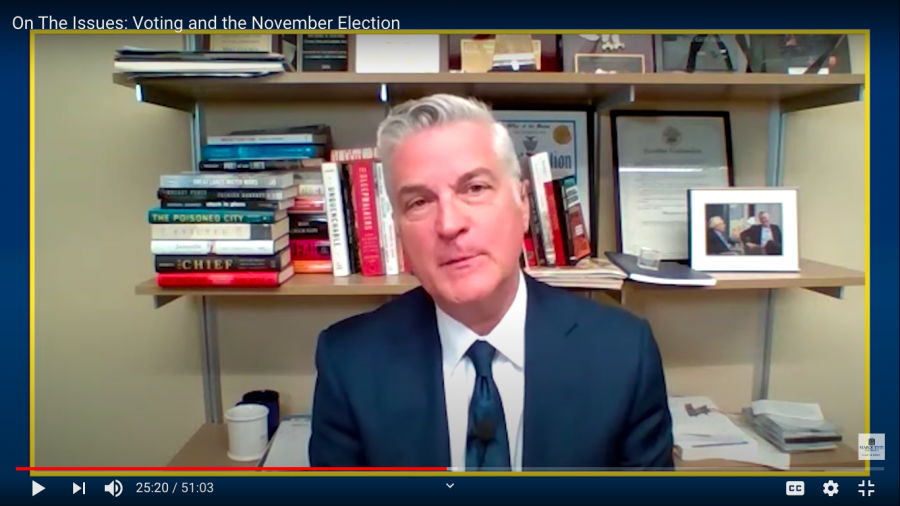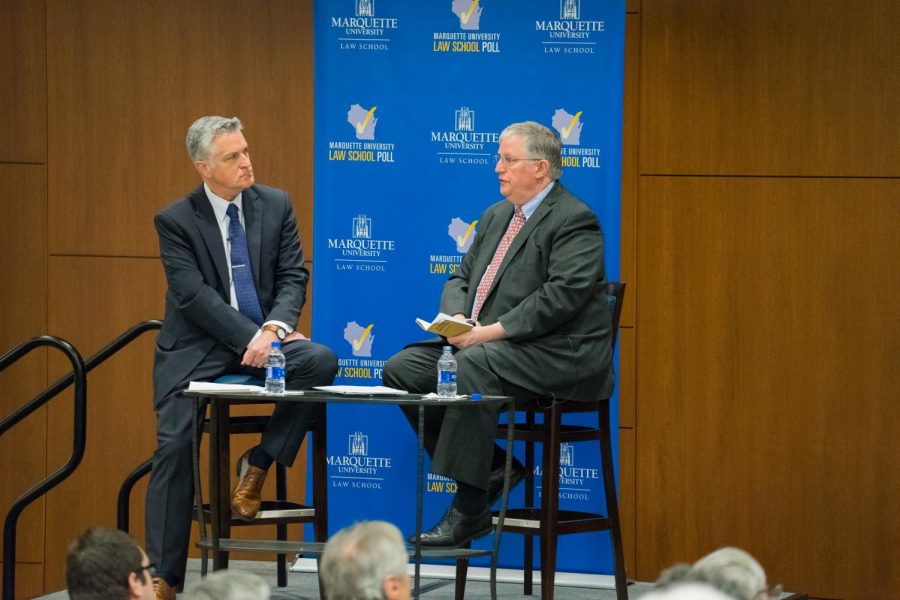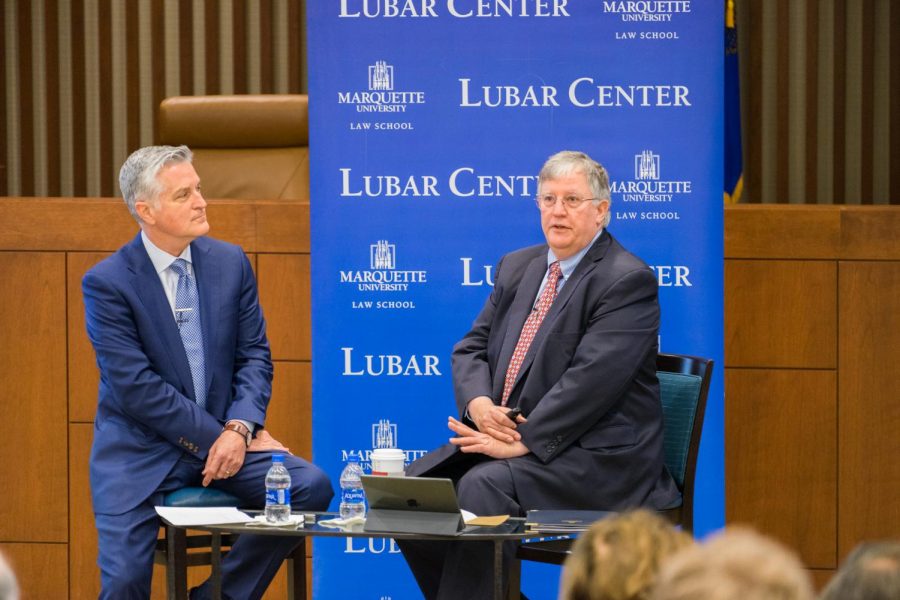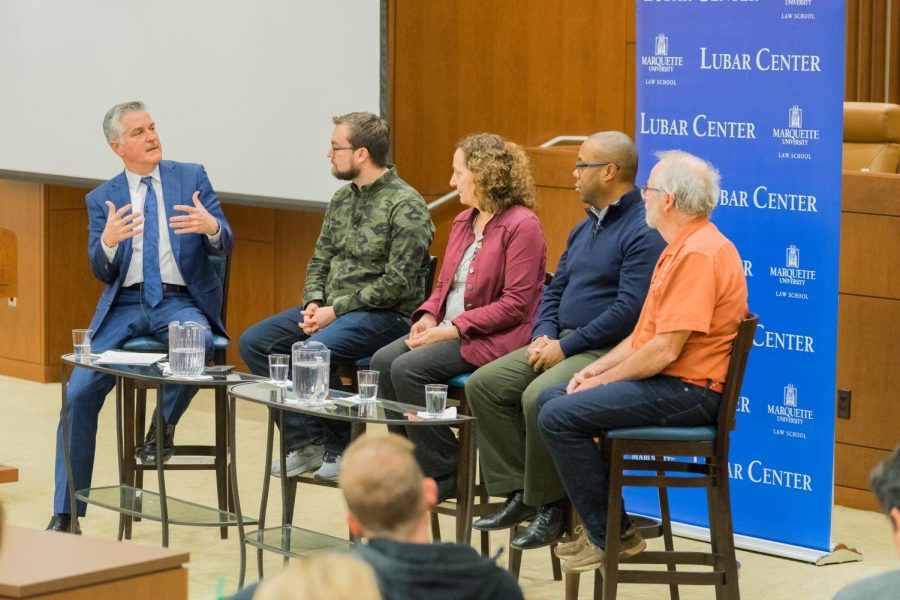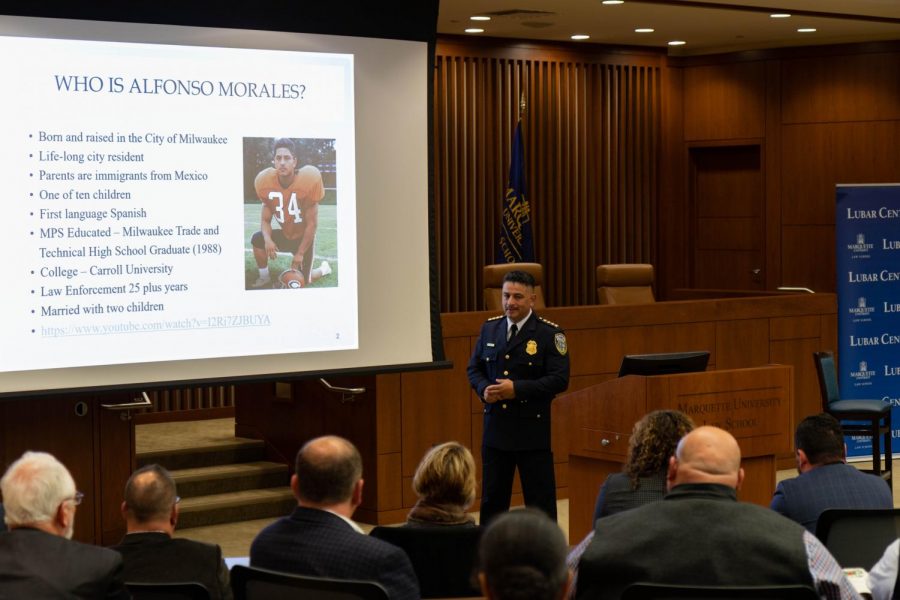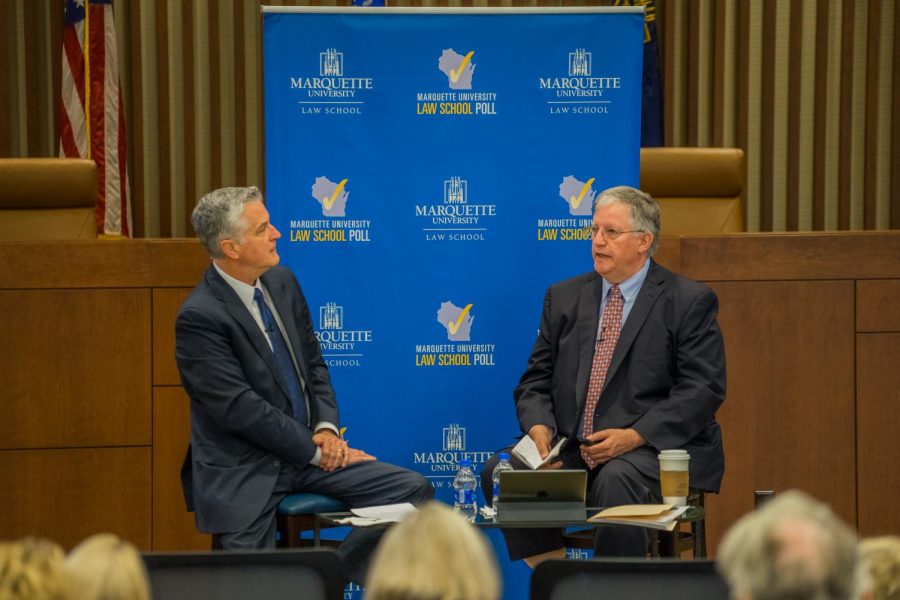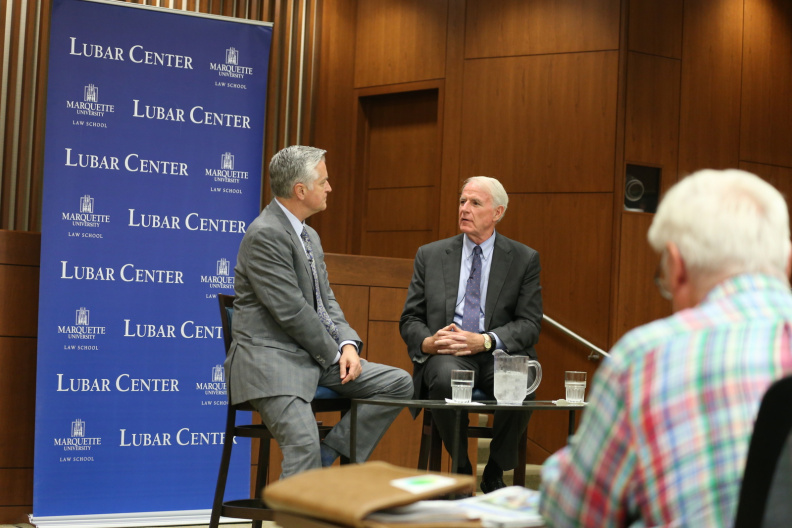
Mark Neumann, a residential real estate developer and Republican candidate for governor, joined Mike Gousha in Sensenbrenner Hall for an “On the Issues” interview Thursday afternoon to discuss Neumann’s vision for Wisconsin.
The discussion focused on Neumann’s business-like approach to job creation.
Neumann served in the U.S. House of Representatives from 1994 to ’98 and took part in passing balanced federal budgets during those years. While that work is an important part of his resume, Neumann said his experience in the private sector will help him point Wisconsin in the right direction.
He contrasted his experience to that of his opponents, “career politicians” Milwaukee County Executive Scott Walker and Milwaukee Mayor Tom Barrett. Those with private sector backgrounds approach problems differently than those with government backgrounds, Neumann said.
This campaign approach is a good one, especially during hard economic times when people are less likely to trust the government, said Janet Boles, professor emerita of political science. It also helps that Neumann’s not a part of the incumbent party, she said.
Despite that, Neumann is still 19 percentage points behind Walker in statewide polling conducted by the Wisconsin Policy Research Institute.
Neumann’s plans for changing the state’s business climate include controlling government spending, cutting taxes and restricting government regulation on Wisconsin businesses.
These moves will allow business owners to keep their own money and spend or save it in ways that are best for business, he said.
“I’ve had to deal with government interference firsthand,” Neumann said.
Education policy also was addressed. Neumann, who taught high school math for four years and operates choice schools in Wisconsin, said he wants to remove private school enrollment caps for students who aren’t succeeding in public school systems.
His goal is to have Wisconsin recognized as having the best-educated kids in the United States and the world.
“Anything less than number one is unacceptable,” he said.
Neumann also discussed transportation issues, which includes the proposed $810 million high-speed rail project between Milwaukee and Madison. He also addressed the recent closure of the Zoo Interchange.
When it comes to high-speed rail, Neumann falls in the same camp as Walker, his Republican primary opponent. The federal government doesn’t have the money it’s promising to the state, Neumann said, and if it did, he would want to use it on tax cuts and improving existing infrastructure. He is also concerned about how operating costs would be paid once the line is built.
“If (a high-speed rail line) were economically viable, the private sector would’ve built it already,” Neumann said.
Gousha, distinguished fellow in law and public policy at the Law School, said the environment is an issue Republicans tend to neglect.
However, Neumann was happy to address the environmental issue. As a builder of energy- and cost-efficient homes, Neumann doesn’t think Wisconsin’s current goal for sustainability — 25 percent of electricity for all homes and businesses coming from renewable sources by 2025 — is ambitious enough.
He wants complete energy independence on renewable resources within the next generation and to make Wisconsin the “Silicon Valley of renewable energy.” Just as his vision for job creation, this energy independence will come through a private sector approach.
“We can achieve our environmental goals in a free market, business-driven way and not through government regulation,” Neumann said.


